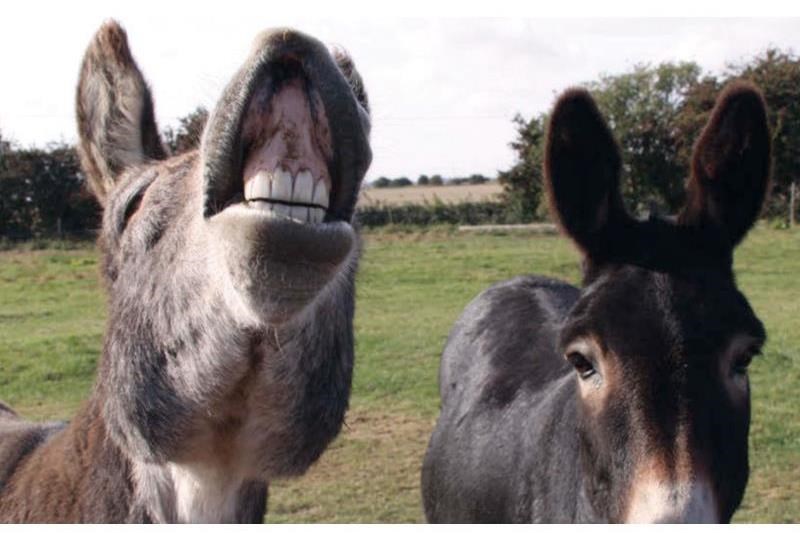If you are a new donkey owner or are thinking about a buying a donkey as your next driving project, the team at HorseHage have this balanced feeding advice.
The donkey’s natural habitat is desert and over the years they have evolved to survive in some very harsh environments, eating little and often, consuming much coarser, fibrous forage than horses and ponies.
They are very efficient at metabolising their food, are able to absorb more calories and have a much lower energy requirement than horses and can easily become over weight, therefore lush pasture is best avoided. It is important for owners to realise the seriousness of overfeeding as this can lead to potentially fatal conditions or long term health problems.
Ideally donkeys should have access to suitable grazing which can be restricted to prevent them from getting too fat. It is important that they have plenty of fibre in their diet through grazing whilst it is available, and by providing good quality forage, such as hay; haylage or bagged forage produced specifically for equines prone to laminitis, or barley straw.
A donkey will normally manage quite well on forage and a suitable vitamin and mineral source, but there may be occasions when the forage may need supplementing or even replacing, ie: if your animal needs to put on condition, is in hard work, is elderly or has difficulty coping with long stem forage due to dental problems.
There are now feeds on the market that have been specifically formulated for donkeys. A donkey’s gastrointestinal tract is actually slightly bigger than a pony’s, so they require a diet that is even higher in fibre. In addition a donkey’s requirement for protein is actually lower than a pony’s.
You should provide free access to clean, fresh water – donkeys are very particular about clean water and at least 1.5% of bodyweight should be fed in total food per day, including forage, even to overweight donkeys. Feedstuffs should always be weighed, particularly when feeding donkeys that are overweight, excitable or prone to laminitis.
If your donkey is looking dull and off colour and is not eating, treat this as an emergency and call the vet straight away. Donkeys are particularly stoic in nature and will not show outward signs of being in pain, such as rolling and pawing the ground like a horse or pony does, and this could indicate severe pain, hyperlipaemia, laminitis or colic.
Mollichaff Donkey has been formulated especially for donkeys as they require a high fibre, low starch and low protein diet, and have a different digestive system to horses and ponies. It is a highly palatable, complete feed and is low in sugar, starch and energy and carries the HoofKind logo to denote that it is suitable for donkeys, mules and ponies that are prone to laminitis.
It contains a balanced blend of dried grass, fibre pellets, oat straw and soya oil with camomile, mint and lemon balm plus a broad spectrum vitamin and mineral supplement which includes limestone and magnesium. When fed at the recommended levels, it needs no further supplementation other than good quality forage or it can be used as a partial forage replacer.
For further information please call the HorseHage Helpline on 01803 527274 or visit www.horsehage.co.uk
